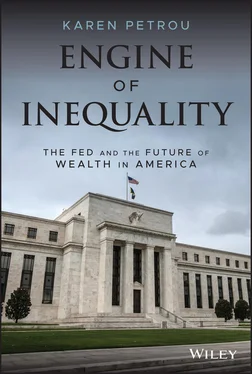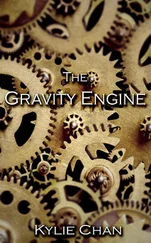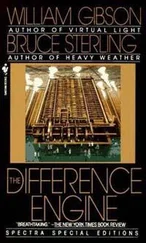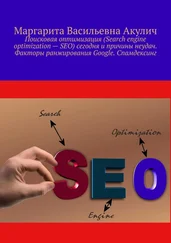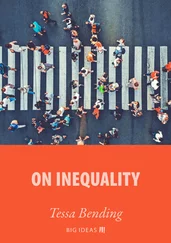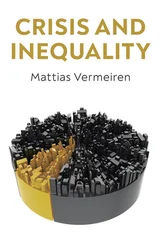The second reason to think of inequality as a financial-policy engine is that it helps us reckon with the critical importance of taking actions that put it into reverse or even turn it off. Letting an engine continue on its course even though the course is wrong only gets us farther from our goal at speeds set ever faster by the engine's cumulative force. To make a difference in inequality, we thus need to pick policies that make a difference as quickly as possible.
This book thus not only details how financial policy made America increasingly unequal faster and faster, but also lays out changes we can make to the engine under current law with remarkably little controversy that will quickly slow the engine and recalibrate its direction toward renewed economic equality.
Much inequality thinking proposes far grander repairs, but most are controversial, costly, and – most importantly – slow-acting. For example, reforming the nation's educational system is indeed an important inequality fix, but it will take years before kids in a better primary school graduate from institutions of higher education and decrease family inequality. We can't wait that long.
Because inequality is an engine with cumulative force that chews up low-, moderate-, and even middle-income families, meaningful solutions must not just be fast-acting, but also politically plausible. Changes to US fiscal policy – i.e., to taxation and spending – such as a “wealth tax” or “guaranteed income” are appealing to some in macroeconomic and social-justice terms but face long, long political odds. Financial-policy fixes to the inequality engine aren't always optimal, but practical policy solutions to income and wealth inequality slow down the inequality engine and give us time also to make more profound structural repairs.
So, what are these fast-acting, politically plausible, and high-impact financial-policy fixes? The first recrafts US monetary policy so it sets interest rates at levels I call a “living return” and retracts the Fed's safety net from beneath financial markets. Ever since the mid-2000s, the prime directive of US monetary policy is what the Fed calls the “wealth effect,” which as its name clearly implies assumes that the wealthier a few people get, the more money trickles down to the rest of us. The wealth effect worked in one sense – wealth has grown to prodigious heights in fewer and fewer hands – but it's done nothing for broader, shared prosperity. This book thus posits a set of monetary-policy actions premised on an equality effect derived from ground-up Fed interventions, not top-down largesse.
You'll see that one reason the Fed thought the “wealth effect” created a “good place” is because the Fed measures America as it was decades ago, not as it now is. When it measured employment, the Fed missed the millions holding only part-time jobs or those out of the workforce due only to lack of hope, not lack of desire to work. The Fed said that American households had growing wealth, but it ignored the fact that most of this wealth was held in fewer and fewer hands. Wage gains in which the Fed took pride resulted from more people in more families having to work more jobs, not from higher wages allowing one wage-earner to support his or her family in reasonable comfort as many of us assumed when we were kids.
And the Fed missed the fact that most American families lived paycheck to paycheck, making ends meet only via high-cost debt. The central bank touted its ultra-low interest rates as a boost to the wealth effect, but all they meant to the vast majority of American households was no hope of saving for the future. Most of the debt they used to get by also remained very, very expensive.
As we'll see, this high debt burden, combined with the challenges to robust employment, hit America hard when COVID pulled the rug out from under all the Fed's mistaken expectations. Still, when the pandemic struck, the Fed created two huge facilities to backstop giant corporate debt and opened a “Main Street” bank that in fact did business with companies able to repay loans greater than $250,000 because their annual revenues were as much as $5 billion. The Fed could and should instead have opened a Family Financial Facility that provided ground-up – not trickle-down – emergency economic support.
However, it's not enough for the Fed first to fix monetary policy based on a true reading of America's unequal economy and also to aid those truly in economic need under acute stress. We cannot have shared prosperity if the US financial system crashes disastrously every decade or so.
The third fix to the inequality engine in this book thus redesigns US financial regulation not by removing all the costly rules imposed on banks after 2010, but instead by realigning rules so that like-kind financial activities come under like-kind rules. When only banks are under tough safety-and-soundness and consumer-protection rules, finance moves outside banks and thus outside a lot of equality-critical regulation. This it did from 2010 to 2020 and we know what happened then.
Fixing the financial system means not just new rules, but also new institutions. We can fix the unequal allocation of affordable credit in part by fixing how financial institutions are constructed. Equality Banks are thus among my fixes for a more equal financial system.
Finally, we can't forget the inequality engine's fuel: money. Companies such as Facebook and Amazon aren't just dominant in social media and retailing – they plan to issue new forms of money on a redesigned payment system. This could give them control not only over with whom we associate, what we buy, what we read, and even how we vote, but also over how much money we have and to whom it goes how. We are used to thinking about money as the bills in our wallets or the numbers in our bank accounts, but a quiet revolution redefining money is well under way. If it proceeds without appropriate controls, then the inequality engine's fuel will go still faster and in even larger amounts to those who need it least.
Thus, the last fix I detail crafts a new, digital money system under Fed control along with controls on the Fed to ensure that its new money enhances equal access and secure transactions, not just for the wealthy but also for the rest of us. Much in this book lambasts the Fed, but I still trust it with my money more than Facebook.
In the sixties, a social philosopher said, “In the same way as men [sic] cannot for long tolerate a sense of spiritual meaninglessness in their individual lives, so they cannot for long accept a society in which power, privilege, and property are not distributed according to some morally meaningful criteria.” 4 When so much wealth is in so few hands, its morality is elusive and the fury this engenders becomes widespread.
To address the defining economic, social-justice, and moral questions of our time requires a fast-acting, targeted, and politically-plausible action plan aimed at the policies that exert the most force in the inequality engine. This book will prove that financial policy is this inequality engine and also that it can first be reversed and then shut down. If we fail in the 2020s as badly as we failed in the 2010s to fix financial policy, fury will indeed be loosed and financial policy-makers will deserve it. The rest of us, not so much.
1 1. Karen Shaw Petrou, “Income Inequality: The Battlefield Casualty of Post-Crisis Financial Policy” (speech, Chicago, November 3, 2020), available at https://fedfin.com/images/stories/press_center/speeches/Income%20Inequality-The%20Battlefield%20Casualty%20of%20Post-Crisis%20Financial%20Policy_Speech.pdf.
2 2. Karen Shaw Petrou, “The Inexorable Will of the Financial Market: Profit Imperatives and Financial-Policy Design” (speech, New York, March 1, 2018), available at https://fedfin.com/images/stories/press_center/speeches/Karen%20Petrou%20Remarks%20Prepared%20for%20Distinguished%20Speaker%20Lecture%20Federal%20Reserve%20Bank%20of%20New%20York.pdf.
Читать дальше
